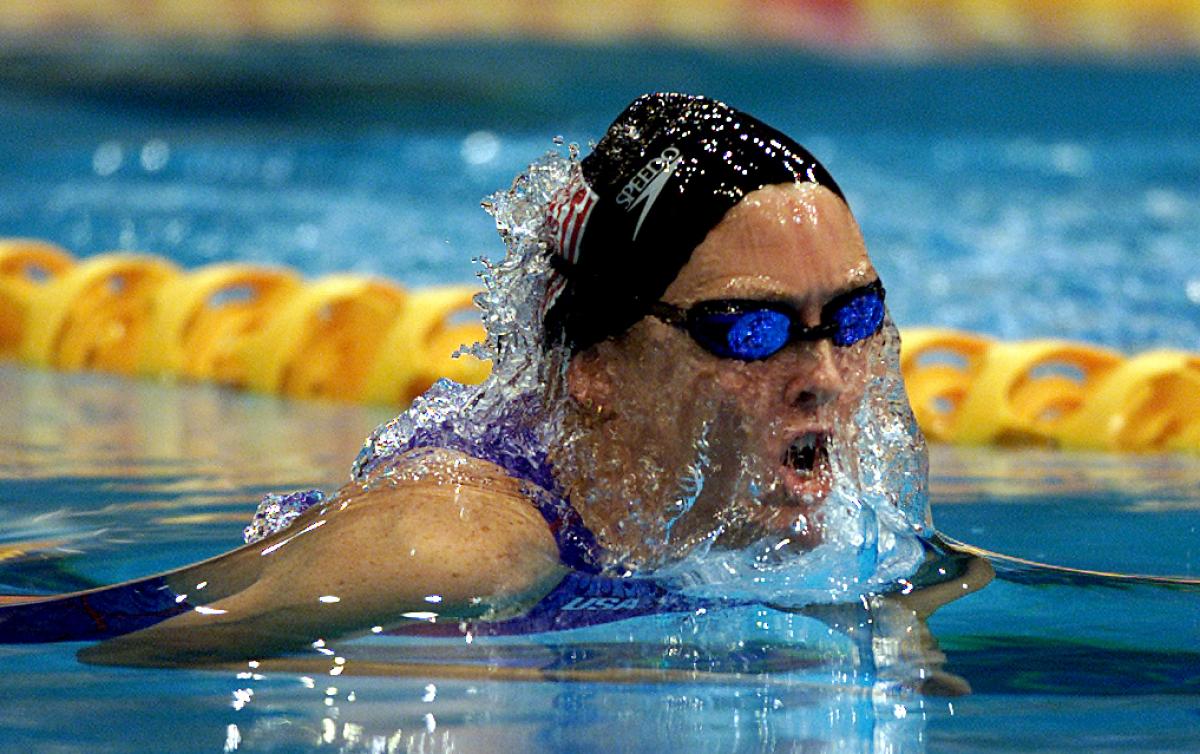
Some people are determined to succeed no matter what obstacles they face. Watching from afar, it seems as if nothing will stop their almost single-minded quest to be the very best at what they do. Former Paralympic swimmer Trischa Zorn is one such person, having the distinction of being the most successful athlete in the history of the Paralympic Games, winning 41 gold, nine silver, and five bronze medals over the course of her 24-year career.
Zorn was born on June 1st, 1964 in Orange, California with aniridia, a congenital, genetic eye condition that rendered her legally blind from birth. She began swimming at top national swimming program Mission Viejo Nadadores at the age of seven, training alongside the likes of Cynthia Woodhead and Shirley Babashoff. Finding success as a swimmer before disabled athletes were welcomed into mainstream competition, Zorn swam in her first disabled event in 1979, later receiving a full scholarship to the University of Nebraska, where she earned NCAA honors in the backstroke and 4x200-meter medley relay.
Her Paralympic career began in the summer of 1980 at Arnhem, Netherlands, where she took a gold medal in seven different swimming categories. She continued to collect a further 34 gold medals over the following four Paralympic Games, finishing her career in the 2004 Athens games by taking one last bronze medal in the 100m backstroke and cementing her hold on eight world records in her disability category.
Alongside her athletic career, Zorn spent over a decade as a teacher of disabled children in Indianapolis, Indiana, serving as a role model and encouraging them to reach beyond the obstacles placed in their way.
“I thought with what I have overcome with my disability that if I could just reach these children in the inner city . . . that I could be a good role model for them and that would satisfy me,” she said in a 1995 interview with the Los Angeles Times.
Moving on from both the Paralympics and the classroom, she earned her Juris Doctor degree from the Indiana University Law School in 2005 and used her legal acumen to serve with the U.S. Department of Veterans Affairs as a legal instrument examiner for a 16-state region, helping to protect veterans’ benefits. She now serves as a supervisor in the fiduciary department and oversees processing centers. While she believes her medals do not define her and never have, she believes that she made a positive impact on the sport and paved the way for future paratheltes to succeed.
